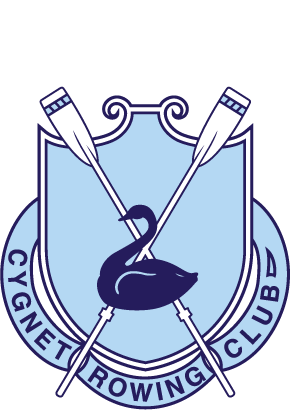BungALOW BOATS & Safety
This page details site specific safety considerations which are in addition to the Cygnet Safety Plan but are still covered by the Risk Assessment. It is predominantly for the purposes of Sculling Camp but applies generally to anyone boating from Cygnets bungalow.
GENERAL
- We are guests at the Cygnet bungalow and your behaviour on the water and around the property should reflect this. Please respect our neighbours
- Always leave the bungalow and its boats in the clean and tidy state that it was found in
- The bungalow operates a strict no-smoking policy
BOATING
Getting afloat
- Use appropriate footwear - sandals or trainers are ideal
- Take care when carrying boats - it's easier to ask for help than to repair a damaged boat (or person)
- Beware of motor boats and wash when boating, particularly from the left (downstream) side
- What little stream there is runs right-to-left across the landing. Always boat and land with your bows into the stream
Signing out
- We do not operate a signing-out board at the bungalow like we do at the boat club. Therefore you should always tell someone that you are going afloat, for how long and where you plan to go.
- Novice scullers should adopt a 'buddy' system whereby they always go afloat with at least one other sculler
- Carrying a mobile phone (in a waterproof case) is recommended, especially if going out alone
LOOK OUT - every 3 to 5 strokes
There are many more pleasure craft on this stretch and the river is generally narrower than the Tideway. There are also rowers from four other clubs, canoeists, sailors, fishermen, ferries, water fowl, weirs and bridges so keeping a good lookout is still extremely important even if steering off the bank is easier.
Clothing
Avoid wearing bulky items that make it hard to swim should you fall in. Scullers should wear normal rowing kit. It is possible that novice scullers may experience multiple capsizes during the weekend. Do not go afloat in your last dry set of clothes, always save something to change into.
Capsize
- If you feel that you cannot handle a capsize situation on your own then do not go out of sight of the landing stage
- In the event of a capsize: don't panic; stay with the boat, get on top of it as a float if possible, call for help and try to paddle the boat towards the shore. You may find it shallow enough to stand in many places near the edge.
- Always shower as soon as possible after a capsize to prevent cold injury and infection from water-borne disease
Swimming
Swimming is not recommended, particularly if it is cold or if there is a strong stream running. There is also a small risk from water-borne disease
Bungalow Dinghies
Guests are welcome to use the dinghy at the Bungalow. It is recommended that all dinghy users wear a PFD (Life Jacket or Buoyancy Aid) and children should not go afloat without one. PFDs are provided, included smaller ones for children.
• Always step into and out of the middle of the dinghy
• Oars should never be left in a dinghy, particularly when the boat is tied-up elsewhere.
• When loaded, the dinghy should have enough freeboard to pass through motor boat wash without taking-on water. Do not overload the boat, make extra trips instead
• Use of the dinghy at night is not recommended. If absolutely essential then carry a white light visible all round, a mobile phone and keep an extra good look out (and listen out)

'Cygnets' CYG303
Maximum load, 5 people
EMERGENCIES
On or off the water call 999 and ask for the appropriate emergency service. The address is 38 Hamhaugh Island, Shepperton TW17 9LP
Note: There is no lifeboat on this stretch of the river but it may be possible to summon assistance from the shore. If going to someone's assistance, only do so if it is possible without also endangering youself. Do not make the situation worse with heroics

